Marco Musiani
Marco (PhD) is a Professor with the Dipartimento di Scienze Biologiche, Geologiche e Ambientali (BiGeA) and Referente Scientifico Collezione di Zoologia (Scientific Advisor Zoology Museum), Università di Bologna, Italy. He is also an Adjunct Professor of ecology and evolution in the Dept. of Biological Sciences, Faculty of Science, University of Calgary. He runs field and lab projects on large terrestrial mammals, and really enjoys working and interacting with his graduate students and research fellows.
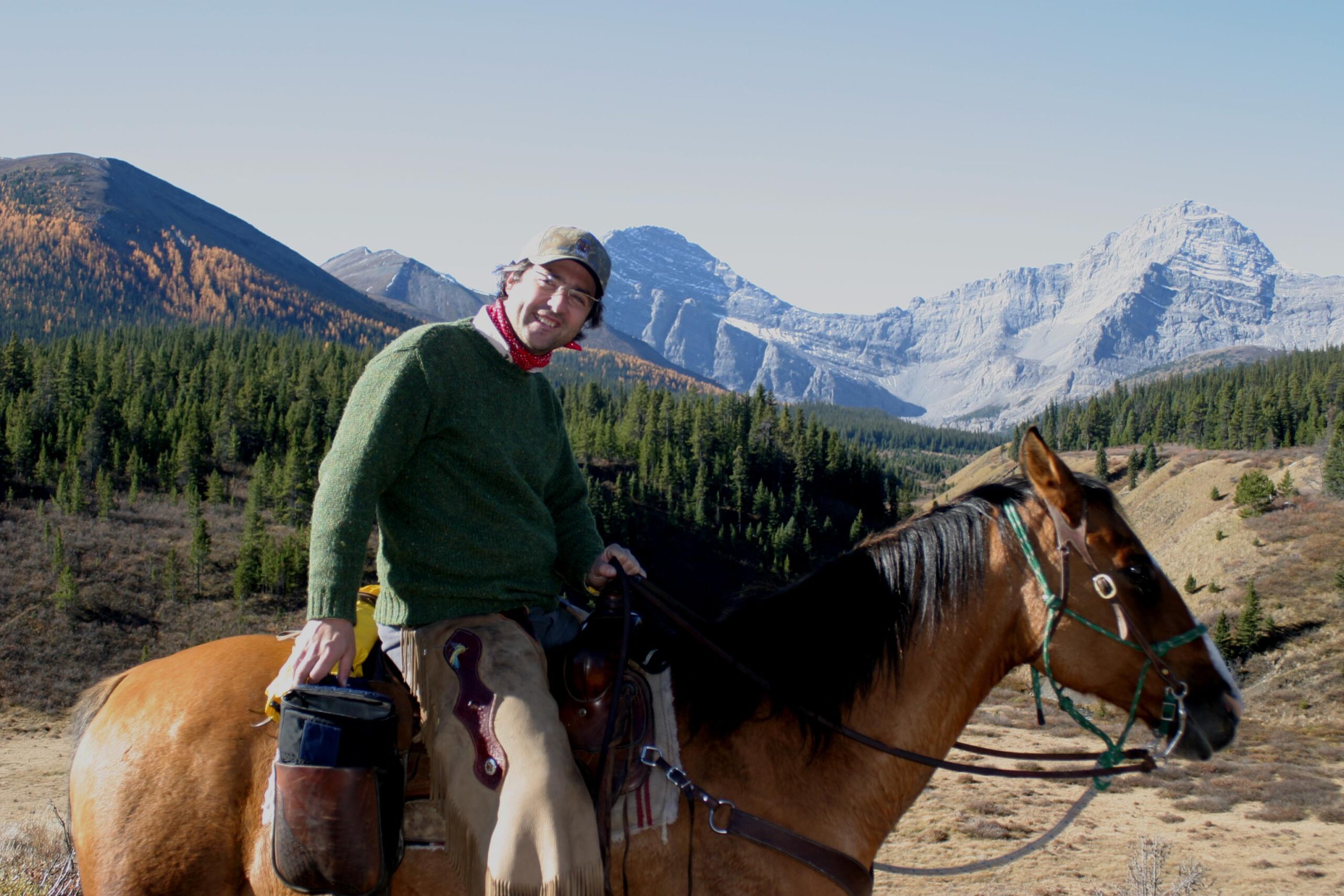
 Dr. Marco Musiani
Dr. Marco Musiani
Marco is a Principal Investigator on projects on grizzlies, wolves, wolverines, moose, elk, caribou, and other wildlife species throughout the Rocky Mountains and Foothills regions of Canada. All such projects are run together with graduate students and have applications towards impact assessment, mainly of human infrastructure.
His lab has a strong focus on landscape ecology, molecular ecology, and wildlife conservation.
Although his focus is on academic matters, he also works as a reviewer for research and conservation management projects. He has acted as a consultant for the Food and Agriculture Organization of the United Nations (working on conflicts with wolves).
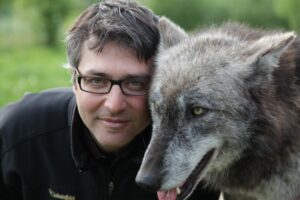
Current team
Wildlife Ecology Research Group
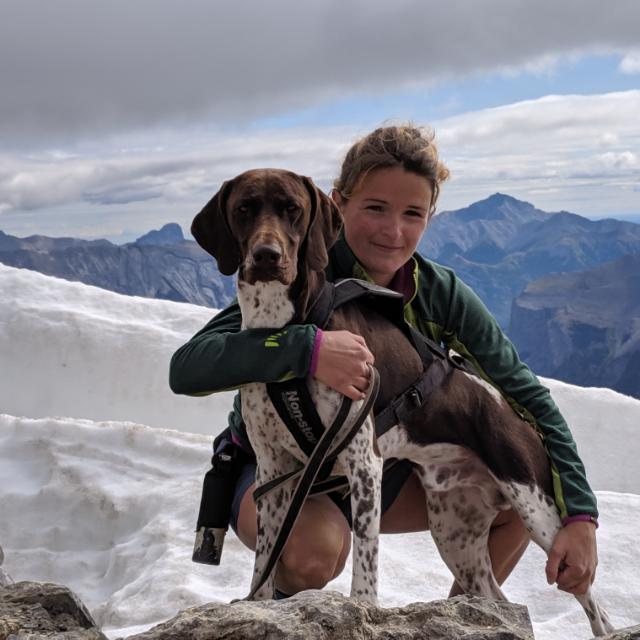
 Maria Cavedon, Postdoctoral Researcher
Maria Cavedon, Postdoctoral Researcher
Maria’s research interests are in ecological and conservation genomics. Her project aims to determine Single Nucleotide Polymorphism under selection in caribou populations in western North America and differences of these markers across populations. She integrates molecular and ecological data (e.g. telemetry locations) to investigate important matters for caribou conservation, such as the eventual existence of a genetic component in habitat specialization and migratory behaviour.
Maria Cavedon
Postdoctoral fellow & Skier
My research interests are in ecological and conservation genomics. I integrate molecular and ecological data to investigate important matters for caribou conservation,
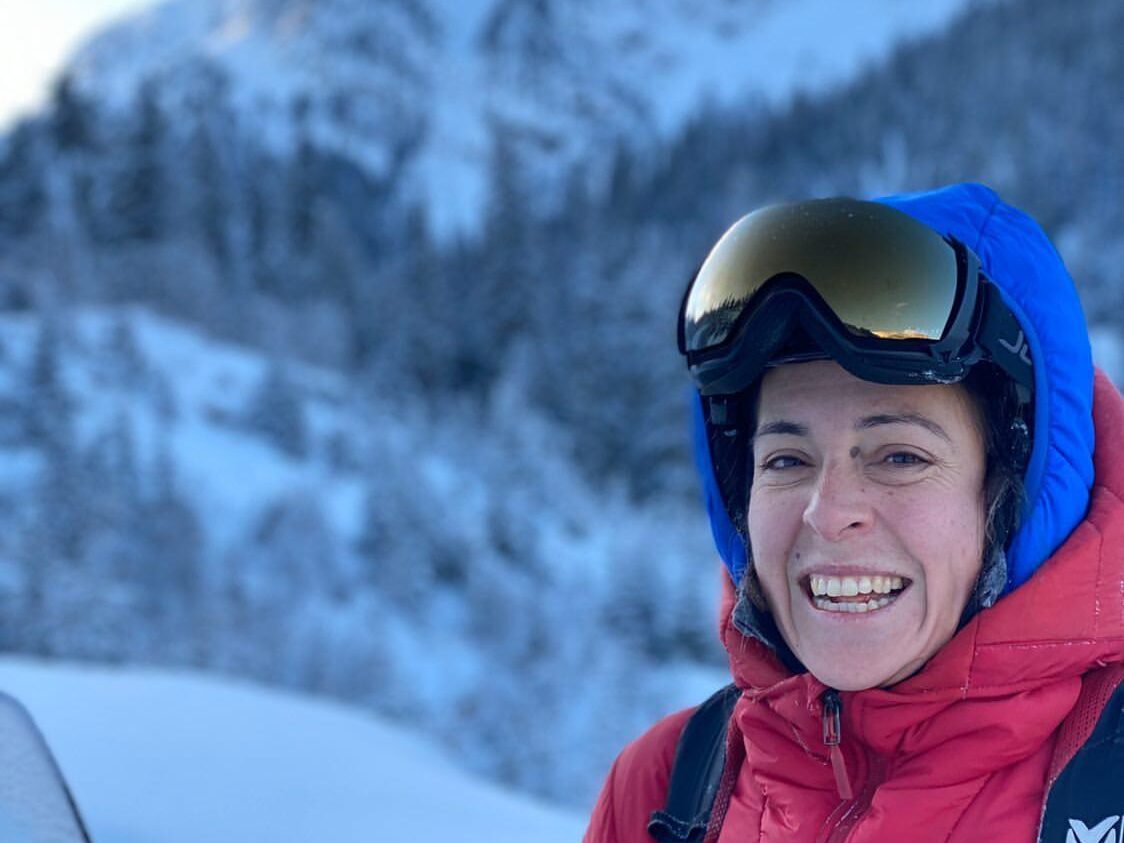
 Mirjam Barrueto, PhD Student
Mirjam Barrueto, PhD Student
Mirjam’s research interests are in conservation ecology. Her PhD project aims to compare impacts of several key human and natural factors on wolverine density, distribution, and connectivity in multi-use landscapes in the North Columbia and North Thompson Regions (BC) and the central Rockies (AB, BC), with a special focus on reproductive females. She uses wildlife cameras and non-invasively collected DNA and analyzes the resulting photo and microsatellite data using spatial capture-recapture frameworks and landscape genetic approaches. Her project website is www.wolverinewatch.org/females

Mirjam Barrueto
PhD Candidate & Mountain athlete
I seek to compare impacts of several key human and natural factors on wolverine density, distribution, and connectivity in multi-use landscapes in the North Columbia and North Thompson Regions (BC) and the central Rockies (AB, BC).
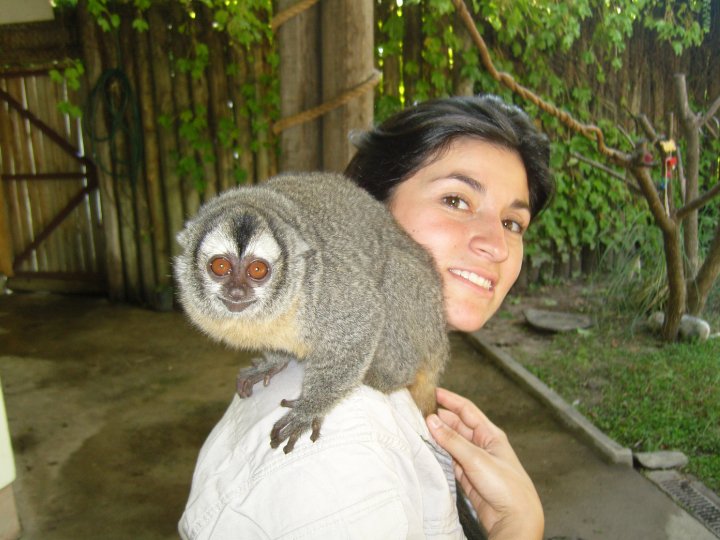
 Alejandra Santa, Ph.D. Student
Alejandra Santa, Ph.D. Student
Maria Alejandra is originally from Bogotá, Colombia. She completed her undergraduate degree in veterinary medicine at the National University of Colombia in 2011. Since she was an undergraduate student, she has been interested in wildlife health and disease ecology at the intersection between human, animal and ecosystem health. After her undergrad, she worked as a wildlife veterinarian, specifically on the genetic and health assessment of nocturnal monkeys in the Amazon forest, and the epidemiologic study of zoonotic parasitic diseases in primate and rodent species in Colombia. In 2016, she started her Ph.D. at the University of Calgary on a project studying the eco-epidemiology of a zoonotic parasite, Echinococcus multilocularis, in red foxes and coyotes from western Canada. Her project aims to assess the genetic diversity and the distribution of the European strain of this parasite to understand the origin, evolution and spatial distribution of this strain in North America, and the potential risk that the presence of this strain represents for humans and domestic animals.
Publications
- Santa, M. A., Rezansoff A. M., Chen R., Gilleard J.S., Musiani, M., Ruckstuhl, K. E. and Massolo, A. (in press). Deep amplicon sequencing highlights low intra-host genetic variability of Echinococcus multilocularis and high prevalence of the European-type haplotypes in coyotes and red foxes in Alberta, Canada. PLOS Neglected Tropical Diseases.
- Massolo A., Klein C., Kowalewska-Grochowska, K., Belga S., MacDonald C., Vaughan S., Girgis S., Giunchi D., Bramer S.A., Santa M.A. et al. 2019. European Echinococcus multilocularis identified in patients in Canada. New England Journal of Medicine, 381;384-385.
- Santa, M.A., Pastran, S., Klein, C., Ruckstuhl, K. & Massolo, A. 2019. Evaluation of an automated magnetic bead-based DNA extraction and real-time PCR in fecal samples as a pre-screening test for detection of Echinococcus multilocularis and Echinococcus canadensis in coyotes. Parasitology Research, 118;119-125.
- Santa, M.A., Pastran, S.A., Klein, C., Duignan, P., Ruckstuhl, K., Romig, T. et al. 2018. Detecting co-infections of Echinococcus multilocularis and Echinococcus canadensis in coyotes and red foxes in Alberta, Canada using real-time PCR. International Journal for Parasitology: Parasites and Wildlife, 7;111-115. t.
- Roncancio, N., Santa, M.A., Calderón, L.M., Gómez, E.N., Acosta, A., García, L.M. et al. 2018. Differences in the prevalence of cutaneous myiasis between Aotus vociferans and Aotus nancymaae in the Colombian Amazon. Neotropical Primates 24(2); 86-90.
- Santa M.A., Pardo M.E. 2014. Cestodes of hymenolepididae family found in the southern cotton rat (Sigmodon hirsutus) in Huila, Colombia. Rev Fac Med Vet Zoot. 61(1);11-16.
- Peñuela SM, Roncancio-Duque NJ, Santa M.A. 2014. Epidemiological surveillance of wildlife in Colombia and perspectives for the One Health approach. In Varela N (Editor). Antecedentes y Perspectivas de la Medicina de Animales Silvestres, Exóticos y no Convencionales. First Edition. Asociación de Veterinarios de Vida Silvestre (VVS). Bogotá, 240-257.
- Rodriguez-Posada, Miguel E., Santa-Sepúlveda, María A. 2013. Report of injuries in bats caused by the incorrect use of plastic necklaces as a marking method. Therya, 4 (2);395-400.
Alejandra Santa
Veterinarian
Ph.D. Student
I am finishing my Ph.D. on a project studying the eco-epidemiology of a zoonotic parasite, Echinococcus multilocularis, in red foxes and coyotes from western Canada.

 Trevor Thompson, Undergraduate Student
Trevor Thompson, Undergraduate Student
Trevor Thompson hails from Ottawa, Ontario but has spent the last four years in southern Alberta between Lethbridge and Calgary. As a transfer student from Lethbridge College, Trevor decided to attend the University of Calgary to complete his Bachelor of Science as an Ecology major. Here he had the opportunity to participate in the Musiani lab. Trevor’s research focused on comparing differences in behaviour of wolverines at camera trap sampling sites. This project analyzed some of the data collected by PhD candidate Mirjam Barrueto and was co-supervised by Marco Musiani and Robert Barclay. After graduation, he is looking forward to pursuing his interests in behavioural and spatial ecology as part of a research team focused on bats in the Kananaskis area.
trevor Thompson
Ecologist
B.Sc. in Biological Sciences
I am a final-year undergraduate studying wolverine scavenging behaviour at camera trap sampling sites.
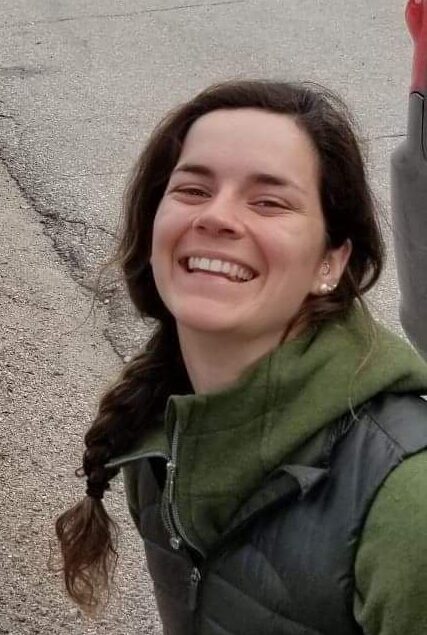
 Margaret Hughes, PhD candidate
Margaret Hughes, PhD candidate
Publications
Jasinski, M., HUGHES, M., Fraser, H.W., Fitzgerald, S., & Willwerth, J.J. (2021). Kestrel nest box occupancy and fledgling rates and the effect of kestrel presence and absence on bird abundance and activity in fruiting crops in the Niagara Region and Norfolk County. Crop Protection. 139,105377

Margareth Hughes
biologist
Ph.D. Student

 Anita Michalak, MSc candidate
Anita Michalak, MSc candidate
Anita is originally from New Jersey, US and came to Calgary after completing her undergraduate degree in Environmental Sciences at Cornell University in 2019. During her undergrad, she conducted a research honours thesis regarding the population structure of bobcats in New York State, which then inspired her to further her expertise in the fields of genetics, conservation, and management. Before starting her M.Sc. at the University of Calgary in 2021, she worked as a field technician on a variety of projects, including a mesopredator trapping project with the University of Georgia, as well as a small mammal high-altitude physiology project through the University of Montana. She is now co-supervised by Drs. Jocelyn Poissant and Marco Musiani on a project involving the conservation genomics of endangered caribou in British Columbia.

Anita Michalak
M.Sc. Student

 Emilie Toews, MSc Biological Sciences
Emilie Toews, MSc Biological Sciences
Emilie Toews is originally from Drumheller, Alberta, and completed her Bachelor of Science in Biology at the King’s University in Edmonton, Alberta. Her primary interests are in zoonotic diseases, especially those involving both wildlife and domestic animals as definitive hosts. After conducting an independent research study into the presence of Taeniid egg infections in coyote, fox, and wolf feces from the Beaver Hills Biosphere during her undergraduate degree, she began graduate studies under the co-supervision of Marco Musiani and Alessandro Massolo at the University of Calgary.
Here, Emilie aimed to estimate the prevalence of enteric Echinococcus multilocularis in domestic dogs living near city parks in Calgary, Alberta in 2012, and investigated the various risk factors associated with these infections both in Calgary and globally.This led to the design of a pilot study and sampling procedure for use in veterinary clinics which will provide an updated true prevalence of E. multilocularis in dogs and will more fully address the associated risk factors. Emilie successfully defended her Masters thesis on these topics in March, 2021. She is now aiding in the administration of the full epidemiological study taking place in veterinary clinics and also working as the lead lab technician and quality control analyst at a biotechnology start-up while awaiting graduation in the fall.
Publications
Toews E, Musiani M, Checkley S, Visscher D, Massolo A. A global assessment of Echinococcus multilocularis infections in domestic dogs: proposing a framework to overcome past methodological heterogeneity. International Journal for Parasitology. 2021 Jan 19;51:379-92
Emilie Toews
biologist & Soccer player
M.Sc. in Biological Sciences

 Tatiana Bárcenas, MSc Biological Sciences
Tatiana Bárcenas, MSc Biological Sciences
Tatiana Bárcenas
Veterinarian & Mountain lover
M.Sc. Student
Past Members
People who have contributed to the consolidation of Marco Musiani Lab
Thanks for being part of our team!
Bachelor’s [n=7]
Trevor Thompson (In Progress) , University of Calgary
Thesis/Project Title: Sex differences in detection of terrestrial large mammals Present Position: BSc student
Sarah Bomhof (Completed) , University of Calgary Thesis/Project Title: Echinococcus and canid hosts Present Position: Undergrad, King’s University
Kelsey Nishimura (Completed) , University of Calgary
Thesis/Project Title: Echinococcus cycle in urban areas (obtained PURE Award) Present Position: Undergrad, University of Calgary
Nora Nachareun (Completed) , University of Calgary Thesis/Project Title: Echinococcus in Calgary Present Position: BSc Student
Mariana Quintero (Completed) , University of Calgary Thesis/Project Title: Echinococcus in dogs
Present Position: BSc Student
Paul Lamont (Completed) , Ecole Nationale Veterinaire de Toulouse
Thesis/Project Title: Comparative analysis of Echinococcus infections (obtained Study Abroad Scholarship, France)
Present Position: BSc Student, Ecole Nationale Veterinaire de Toulouse
Thesis/Project Title: Canis latrans in Calgary (employment, tuition support as University employee)
Present Position: Research Programs Coordinator, University of Calgary
Bachelor’s Honours [n=1]
Liam Horne (Completed), University of Calgary
Principal Supervisor Thesis/Project Title: Caribou migration and reproductive isolation (obtained University of
Calgary Undergraduate Merit Award)
Present Position: Ecological Research Technician, University of Calgary
Master’s Thesis [n=9]
Anita Michalak (In Progress), University of Calgary
Thesis/Project Title: Landscape genomics of British Colombia caribou Present Position: Master’s Student
Tatiana Barcenas (In Progress) , University of Calgary Thesis/Project Title: Echinococcus in urban dogs and risk to owners Present Position: Master’s Student
Samridhi Rijal (Completed) , University of Calgary
Thesis/Project Title: Parasitic dynamics in Bighorn Sheep. Note: I supervised for 6 months while a colleague was on sabbatical.
Present Position: Scientific Writing Tutor, Univ. of Calgary
Emilie Toews (In Progress) , University of Calgary
Thesis/Project Title: Ecology of Echinococcus species in dogs (obtained Canadian Collegiate Athletic Association CCAA Academic All-Canadian Award)
Present Position: Master’s student, University of Calgary
Jessica Theoret (Completed) , University of Calgary
Thesis/Project Title: Morphological and behavioral traits and genetic determination in large mammals (obtained Queen Elizabeth II Scholarship and MITACS)
Present Position: Parks Canada ecologist
Rianne Diepstraten (Completed) , The University of Calgary
Thesis/Project Title: Phenology of Northern plants and bear trends. (Governor General’s Gold Medal Nomination) (obtained NSERC CGS M Scholarship)
Present Position: Biologist, BC Government
Tyler Jessen (Completed) , The University of Calgary
Thesis/Project Title: Grizzly bears, mining and climate in the North.
Present Position: PhD student (nominated for Vanier scholarship), Univ. of Victoria
Joseph Kermish-Wells (Completed) , The University of Calgary
Thesis/Project Title: Grizzly bear predation, human impacts and ungulate dynamics. (obtained Charles E & Walton Kendrew Scholarship, Margaret (Peg) Brown Award In Ecological Design, Allan H Bill Memorial Scholarship, and Robert G Kellaway, Mervyn G Graves, C Sheldon Buckles, Gordon J Cummings Scholarship)
Present Position: Biologist, California State, U.S.
Colleen Arnison (Completed) , The University of Calgary
Thesis/Project Title: Elk decline and anthropogenic changes. (obtained Charles E & Walton Kendrew Scholarship, Margaret (Peg) Brown Award In Ecological Design, Allan H Bill Memorial Scholarship, and Robert G Kellaway, Mervyn G Graves, C Sheldon Buckles, Gordon J Cummings Scholarship)
Present Position: Biologist, Parks Canada
Doctorate [n=5]
Margaret Hughes (In Progress) , University of Calgary Thesis/Project Title: Drivers of isolation of wildlife populations Present Position: PhD Student
Mirjam Barrueto (In Progress) , University of Calgary
Thesis/Project Title: Natural and human factors affecting wolverines. (obtained NSERC CGS D Scholarship)
Present Position: PhD student, University of Calgary
Maria Alejandra Santa (In Progress) , University of Calgary
Thesis/Project Title: Parasitic co-infections: echinococcus and canids (obtained COLFUTURO / Fundación para el futuro de Colombia Carrera Scholarship, Alberta Innovates and MITACS)
Present Position: PhD Candidate, University of Calgary
Maria Cavedon (Completed) , The University of Calgary
Thesis/Project Title: Competing mechanisms of species decline. (obtained Eyes High Doctoral Scholarship -the largest at UofC)
Present Position: Postdoctoral Fellow, University of Calgary
Christa Dubesky (Withdrawn) , The University of Calgary
Thesis/Project Title: Trophic relationships and caribou declines. (Withdrawn AFTER obtained Faculty position, University College of the North, MB)
Present Position: Faculty, University College of the North
Post-doctorate [n=2]
Maria Cavedon (In Progress) , University of Calgary
Thesis/Project Title: Real-time DNA detection of large mammals in the field Present Position: Postdoctoral Fellow
Chrysoula Gkoumpili (Completed) , University of Salford
Thesis/Project Title: Ecological genomics of the North American caribou. Present Position: Biologist, Ministry of the Environment, Greece
Technician [n=7]
Heather Slivinski (Completed) , University of Calgary Thesis/Project Title: Wolverine ecology in the Rockies Present Position: Technician, Parks Canada
Steve Bertollo (Completed) , University of Calgary Thesis/Project Title: Wolverine ecology in the Rockies Present Position: Technician, Parks Canada
Leo Levesque (Completed) , University of Calgary Thesis/Project Title: Wolverine ecology in the Rockies Present Position: Technician, Parks Canada
Tracy Woitenko (Completed) , University of Calgary Thesis/Project Title: Wolverine Ecology in the Rockies Present Position: Development Planner, Town of Canmore
Michele Hueber (Completed) , University of Calgary
Thesis/Project Title: Wolverine population estimates in southern Alberta and BC Present Position: Parks Canada Technician
Brady McLeod (Completed) , University of Calgary
Thesis/Project Title: Grizzly Bear Ecology in West-Central Alberta Present Position: Undergraduate Student, Univ. College North
Joseph Catholic (Completed) , University of Calgary
Thesis/Project Title: Grizzly bear ecology in the tundra of the Northwest Territories (obtained Lutsel K’e Dene First Nation Grant)
Present Position: Wildlife Officer, Lutsel K’e Dene First Nation

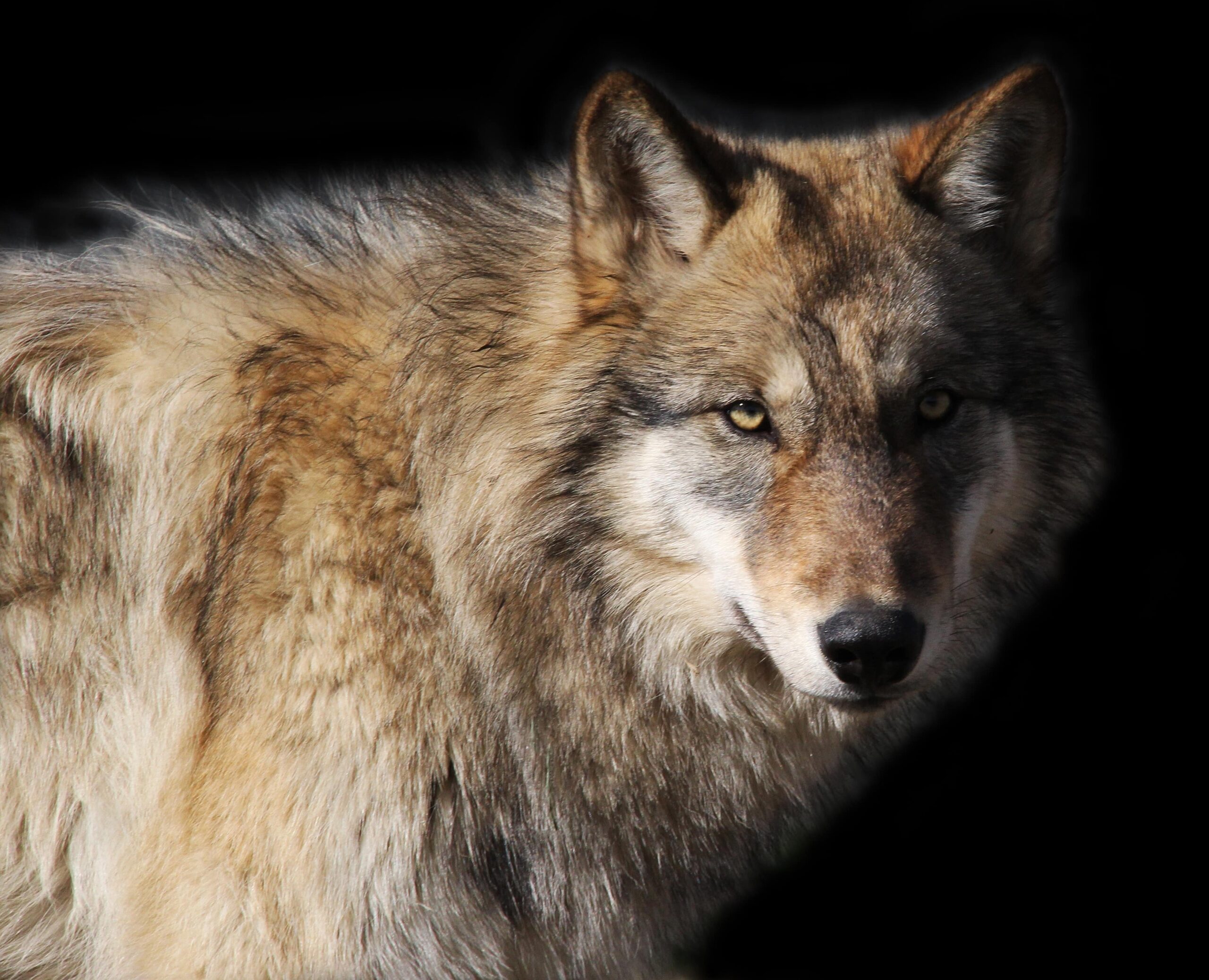 Dr. Marco Musiani
Dr. Marco Musiani 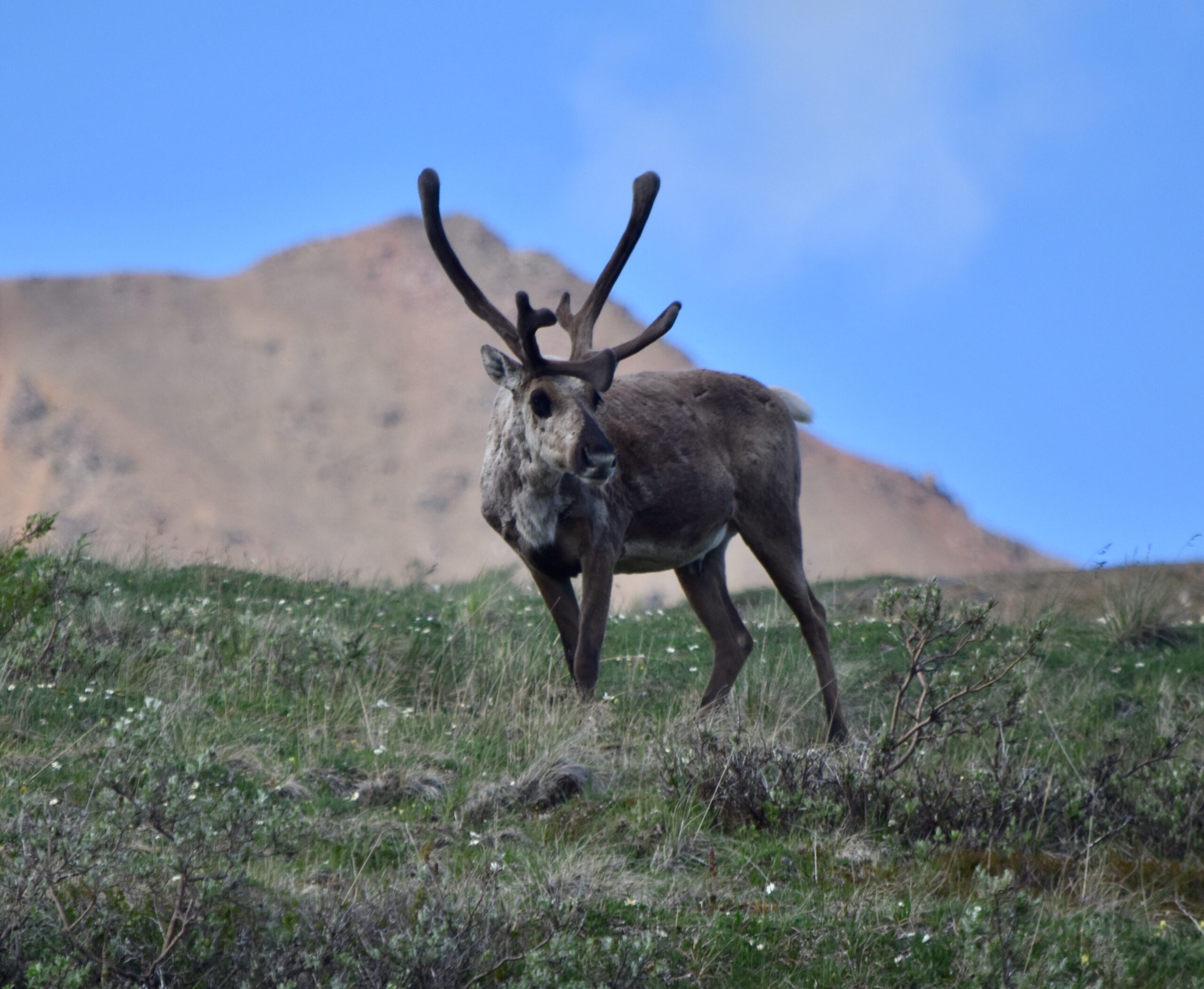 Maria Cavedon, Postdoctoral Researcher
Maria Cavedon, Postdoctoral Researcher 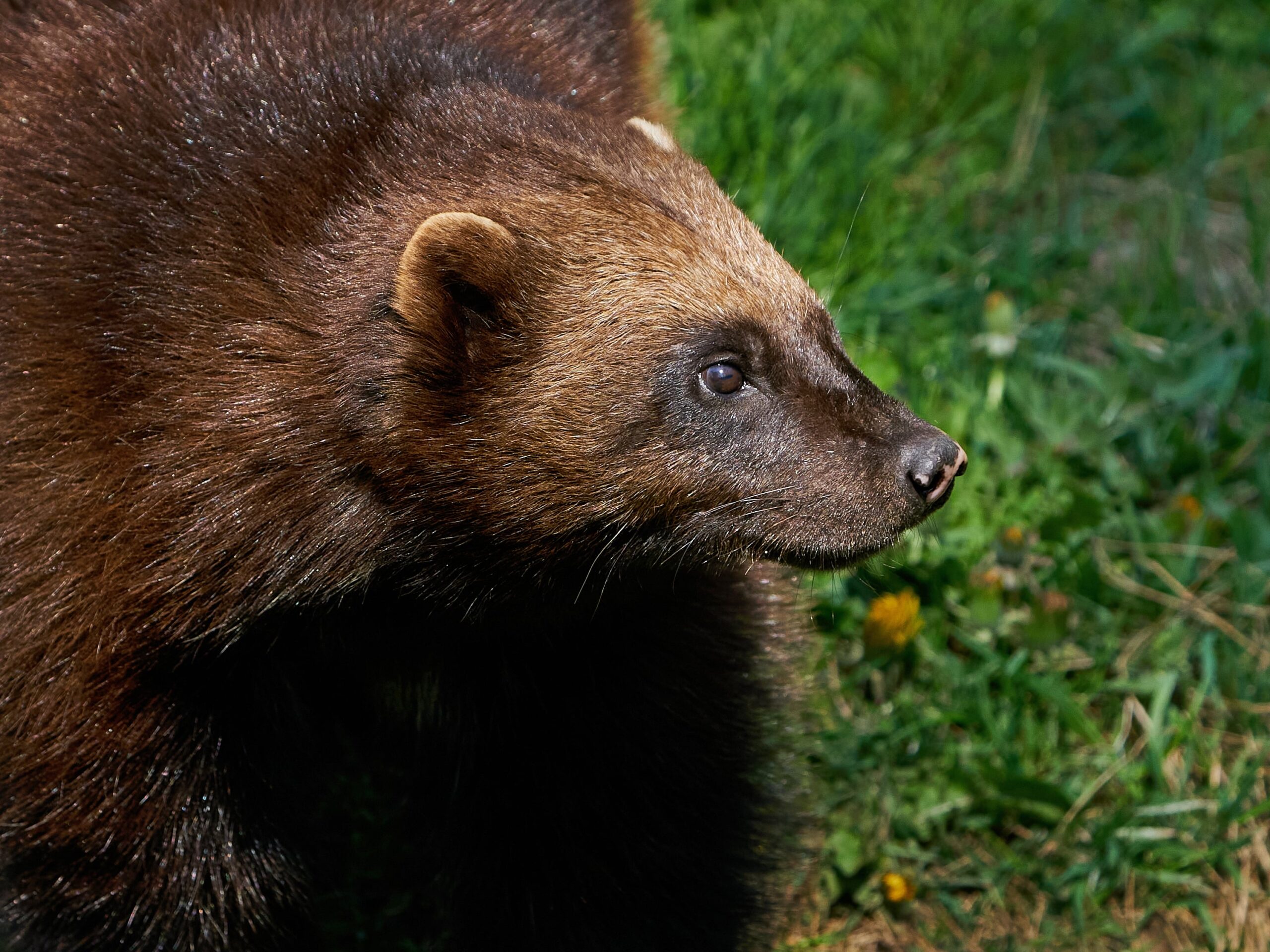 Mirjam Barrueto, PhD Student
Mirjam Barrueto, PhD Student 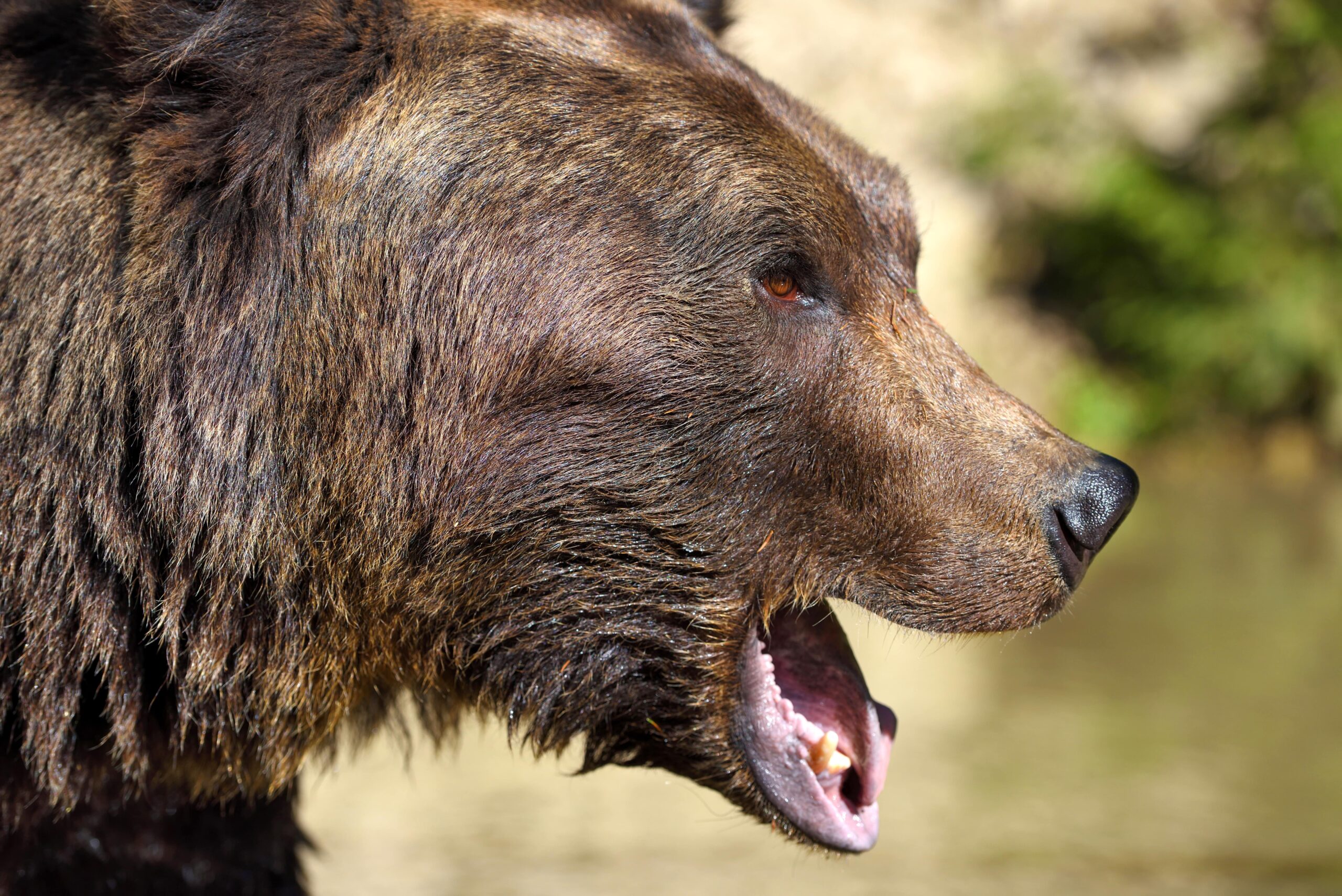 Alejandra Santa, Ph.D. Student
Alejandra Santa, Ph.D. Student 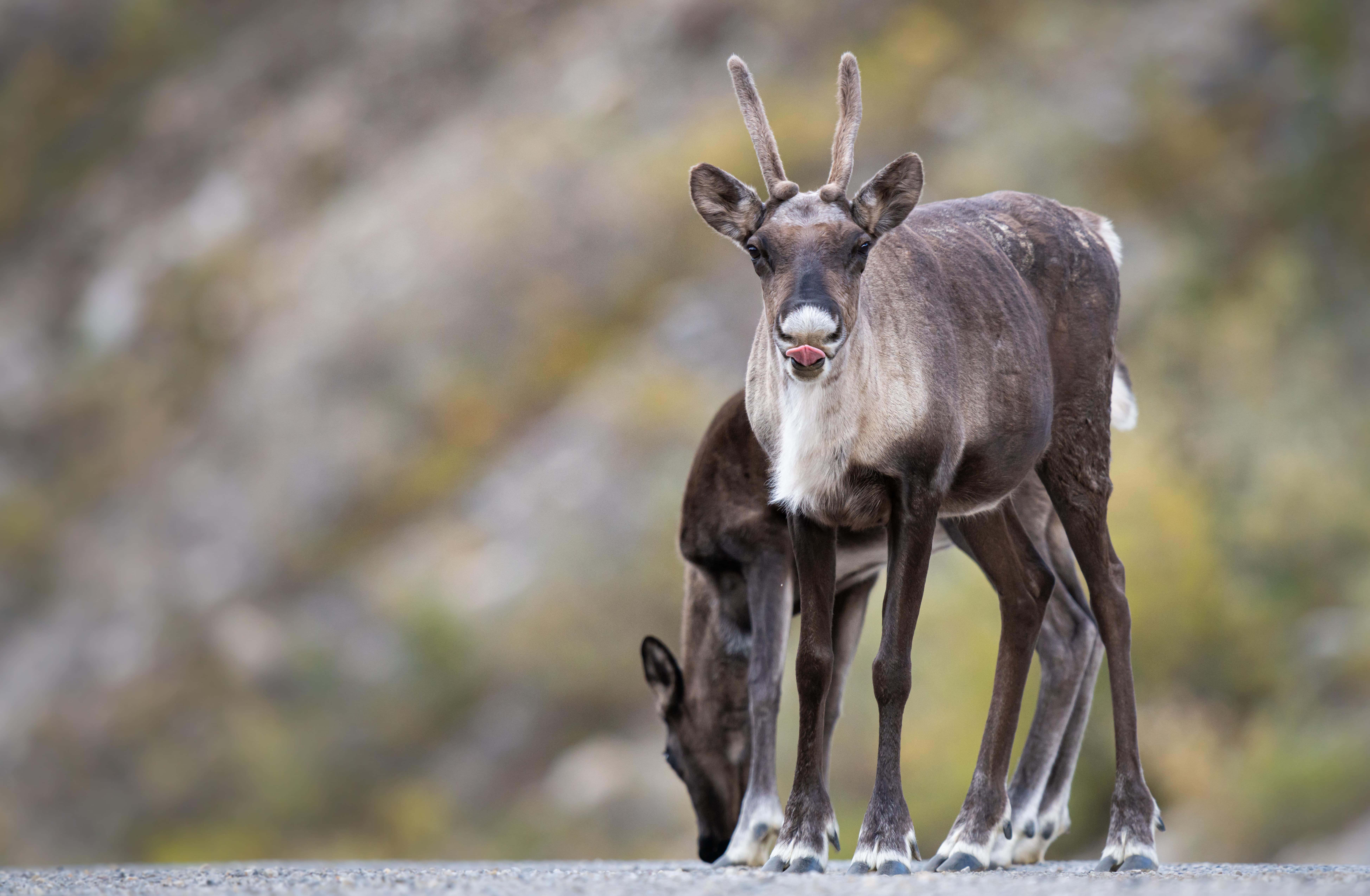 Margaret Hughes, PhD candidate
Margaret Hughes, PhD candidate 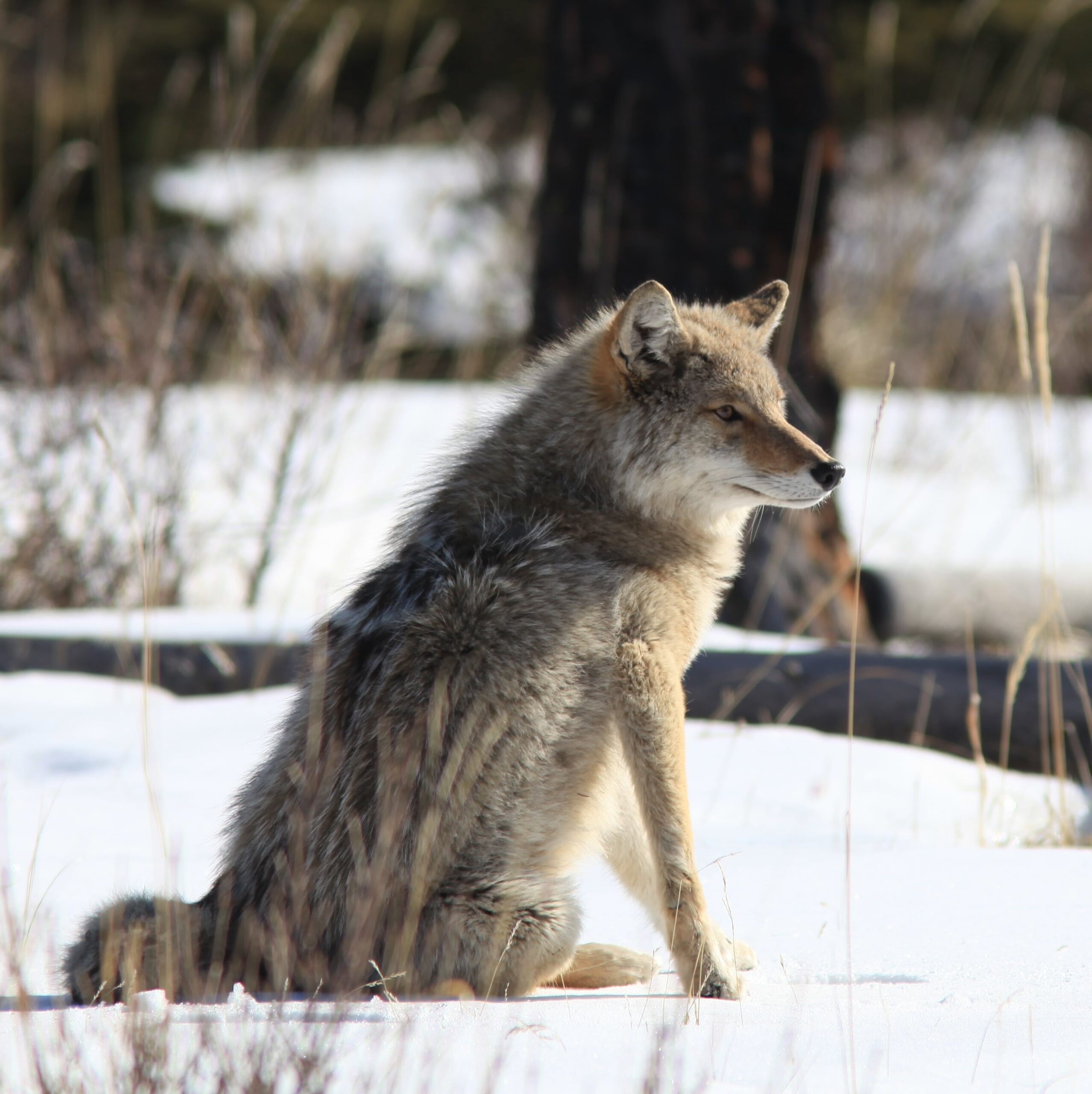 Emilie Toews, MSc Biological Sciences
Emilie Toews, MSc Biological Sciences  Tatiana Bárcenas, MSc Biological Sciences
Tatiana Bárcenas, MSc Biological Sciences 